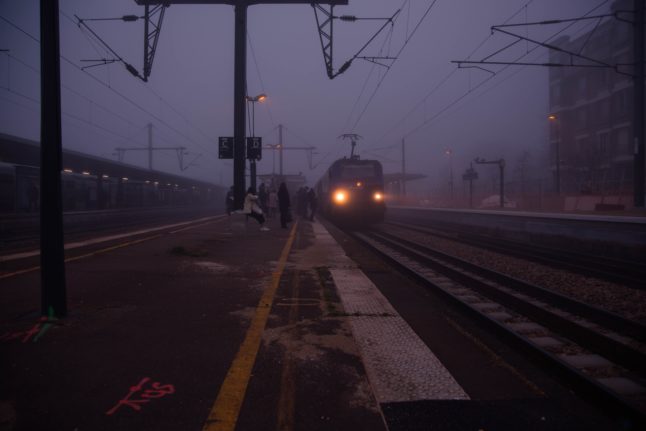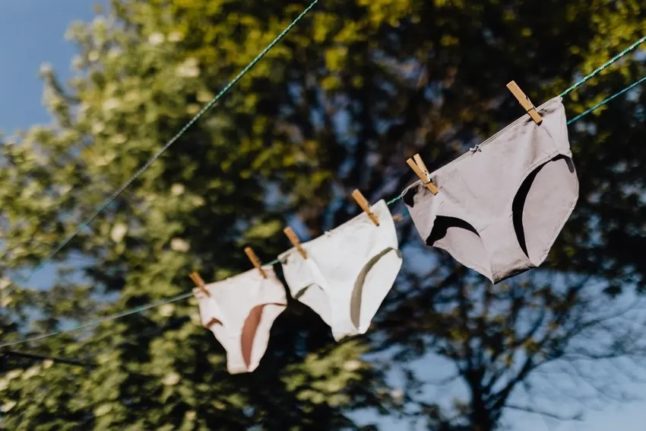New study: Switzerland is top destination for German immigrants
Of all European countries, German citizens most frequently emigrate to Switzerland, according to a new study by the Federal Statistical Office in Wiesbaden, Germany.
At the beginning of 2021, for instance, around 309,000 German citizens resided permanently in Switzerland — 2,100 more than the previous year.
According to the Statistical Office, Switzerland is a logical emigration destination for Germans because there is no language barrier (at least in the Swiss-German part of the country, which is roughly two-thirds of the population).
In addition, they appreciate the physical proximity to their own country.
Financial aspects, such as lower taxes in Switzerland, also play a role, the study found.
Switzerland among “most complicit” nations in tax evasion
Switzerland is ranked in the second place, just after the United States, in terms of “financial opacity”, according to a new report published by the Tax Justice Network.
The so-called secrecy index is calculated by combining a score of each country’s financial and legal system in terms of transparency, with the volume of financial services provided to non-residents.
World’s top suppliers of financial secrecy:
1 US🇺🇸
2 Switzerland🇨🇭
3 Singapore🇸🇬
4 Hong Kong🇭🇰
5 Luxembourg🇱🇺
6 Japan🇯🇵
7 Germany🇩🇪
8 UAE🇦🇪
9 BVI🇻🇬
10 Guernsey🇬🇬Financial secrecy helps tax evaders, corrupt politicians & oligarchs avoid the law #FSI2022https://t.co/oq4YU5Rjyu
— Tax Justice Network (@TaxJusticeNet) May 17, 2022
“Taken by storm”: The Swiss like travelling on night trains
A trend is emerging in Switzerland: travelling in “sleeper cars” to various European destinations is becoming more popular.
Night trains connecting Swiss cities with Amsterdam, Berlin, Hamburg, Hanover, Vienna, Graz, Prague, Budapest, Ljubljana and Zagreb “are taken by storm and reservations are multiplying”, according Arcinfo news platform.
Travellers choose trains rather than planes or cars for environmental reasons and convenience. In the first case, rail travel saves about 50,000 tonnes of CO2 per year — the average annual consumption of 30,000 automobiles.
Also, train travel allows passengers to arrive directly in a city centre without having to transfer from the airport, which adds to the overall convenience of travel, said Liliane Rotzetter, spokesperson for Railtour Suisse.
READ MORE: 10 francs: Everything you need to know about Flixtrain’s Basel to Berlin line
This where Switzerland’s cheapest beer can be found
Some research carried out in Switzerland is more important to consumers than others, and this one definitely fits under the ‘news you can use’ category.
A recent survey conducted by Hellosafe consumer website compared the price of a half a litre of beer in 29 cities in different cantons.
The study found that one of the cheapest pints, at 5.22 francs, can be had in Aarau, followed by Bern (5.92).
While it is one of the world’s most expensive cities, a big mug of beer in Zurich costs “only” 6.96 francs, four cents less than in another relatively inexpensive location, the Valais capital of Sion.
The priciest half-litres are in Geneva (7.72 francs) and Lausanne (7.96).
The study also looked ahead at how the war in Ukraine is likely to increase the cost of cereals used to manufacture beer, impacting the price of the end product.
If Hellosafe’s estimates are correct, then the price of beer will increase the least in Olten, Langenthal, Chur and Arbon.
READ MORE: Seven products that are becoming more expensive in Switzerland
If you have any questions about life in Switzerland, ideas for articles or news tips for The Local, please get in touch with us at [email protected]



 Please whitelist us to continue reading.
Please whitelist us to continue reading.
Member comments